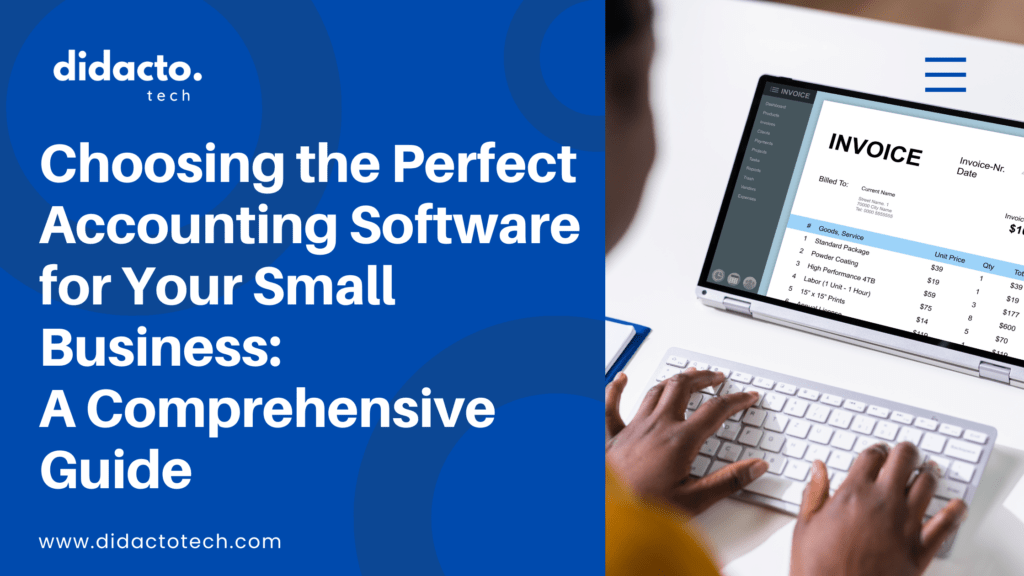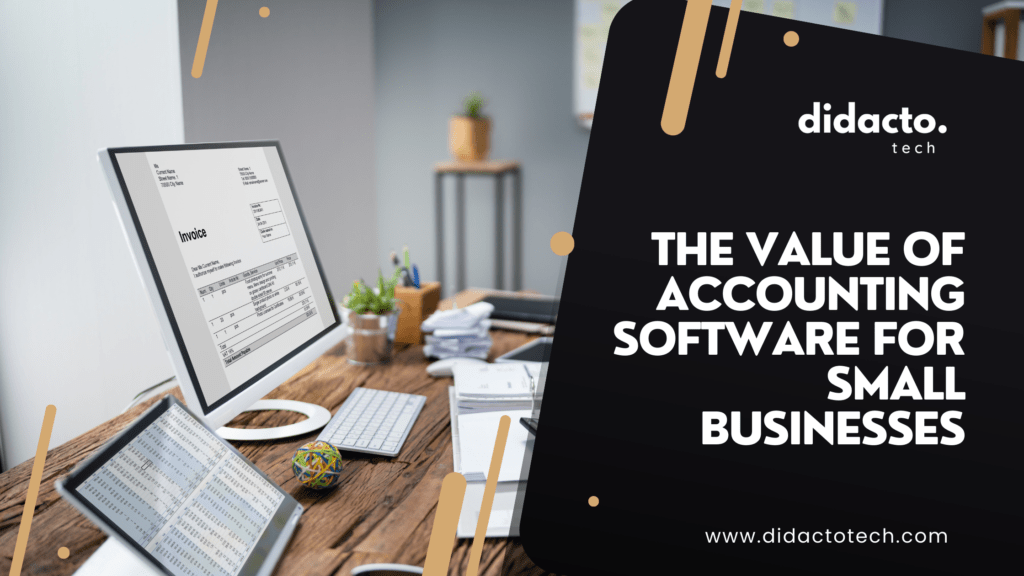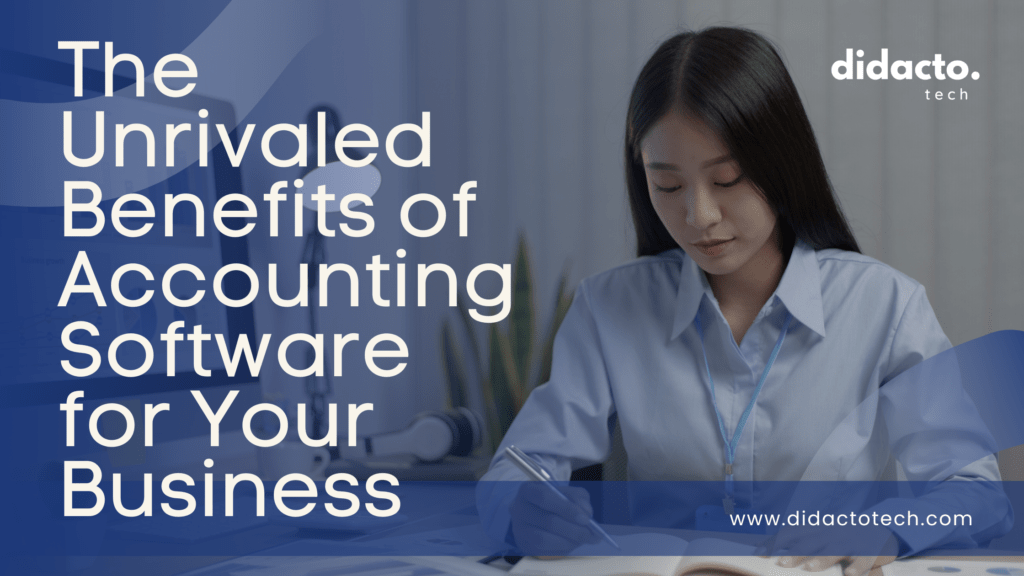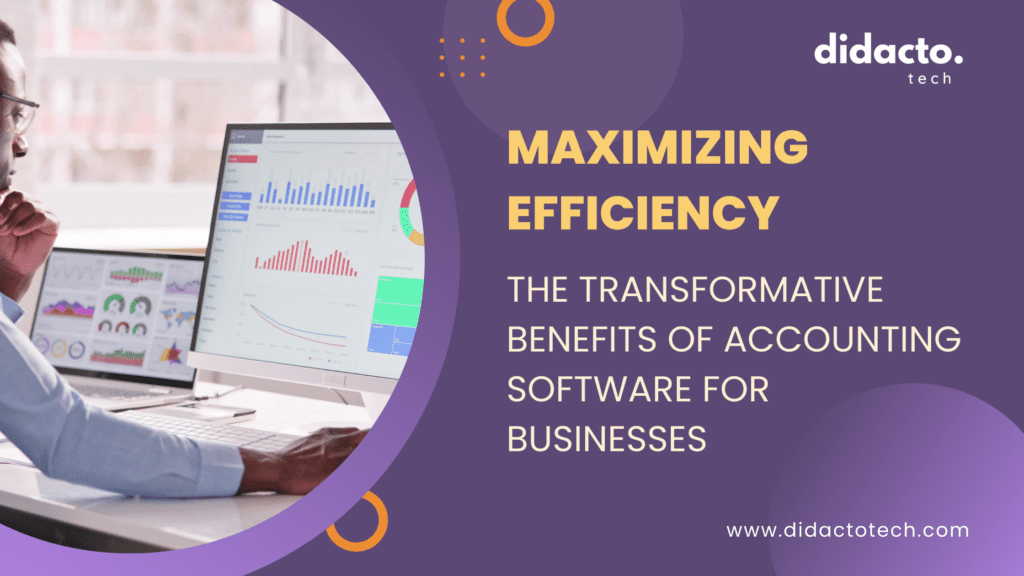Successful entrepreneurs understand the importance of good bookkeeping. However, managing finances can be a daunting task, especially if you’re juggling other aspects of your business’s where accounting software comes in. This blog post will guide you on how to choose the perfect accounting software for your small business.
Table of Contents
Understanding the Importance of Choosing the Perfect Accounting Software
Efficient accounting practices are the backbone of any successful business and shouldn’t be overlooked – especially for small businesses where every penny counts.
1. The Role of Accounting Software in Small Businesses
Accounting software helps to gain control over your financial management. It simplifies tracking incoming and outgoing funds, payment of invoices, tax preparation and even payroll management. It’s like having your very own virtual accountant!
2. Potential Benefits of Effective Accounting Software
Accuracy, efficiency, and cost-effectiveness are key benefits. With it, you can diminish human error, save time by automating routine tasks, and cut down on hiring costs for a human accountant.
3. The Risks of Ineffective or Incorrectly-Chosen Software
Making the wrong choice can, however, result in costly mistakes, wasted time learning complex systems, and potential data security issues. So the selection should be done very carefully.
Identifying Your Businesses Accounting Needs
Different businesses have different financial needs. Let’s discuss.
1. Assessing Your Business’s Financial Complexity
Consider the size of your business, number of employees, volume of invoices, and the complexity of transactions while evaluating the software.
2. Recognizing Specific Accounting Needs for Your Industry
Each sector has unique financial processes. For example, retail businesses need robust inventory management, while a freelancing business may need great invoicing features.
3. Factoring in Business Growth and the Software’s Scalability
The software should be flexible to accommodate business growth, allowing you to add more users, manage more clients or process more transactions as needed.
Evaluating Features of Accounting Software
Check out the features that’ll handle your business needs!
1. Must-Have Features: From Invoicing to Reporting
Essential features include invoicing, expense tracking, bank reconciliation, financial reporting, tax preparation, and customer management.
2. Advanced Features: Automation, Payroll, Inventory, etc.
Depending on your needs, you might require more advanced features like payroll processing, inventory management, project tracking, or automated billing.
3. Customization Options and Their Importance
The software should allow you to customize templates, reports, and workflows according to your business needs.
Assessing Usability Factors
How easy is this software to implement and use?
1. Software Implementation: Cloud-based vs. On-Premise
While on-premise software requires installation on each machine, cloud-based software allows access from anywhere, without complex installations.
2. User Interface and Ease of Use
A user-friendly interface reduces the learning curve and allows your team to get up and running quickly.
3. Mobile Access and Integration with Other Tools
Mobile access is important for on-the-go business management. Also, compatibility with tools you’re already using can increase efficiency.
Considering Your Budget and the Value for Money
Make sure the software fits within your budget, and delivers quality service.
1. Cost Analysis: Upfront Fee vs. Recurring Subscriptions
Some software charges a one-time fee while others have monthly subscriptions. Calculate long-term costs before deciding.
2. Understanding What Costs are Included
Understand what’s included in the price, such as updates, tech support, additional users, etc.
3. Comparing the Value of Different Software: Case Studies
Reviewing case studies can give you an idea of the software’s full potential and whether it delivers appropriate value for its cost.
Carrying Out a Trial Run and Seeking Reviews
Before making the final decision, take a test drive!
1. The Importance of Software Demos and Free Trials
Demos and free trials help you understand the software’s functionality and whether it suits your business needs before you commit financially.
2. Reviews: What to Look for and Where to Find Trustworthy Ones
Look for reviews on the software’s functionality, performance, customer support, and user experience.
3. Getting Feedback from Your Team: Ease of Use and Feature Assessment
Observe your team’s response to the software. If they find it intuitive and easy to use, that’s a good sign.
Summary: Steps to Choose the Perfect Accounting Software
Choosing the perfect accounting software for your small business involves assessing your business needs, evaluating software features, considering usability factors, and keeping your budget in mind.
Recap of Essential Considerations
Remember, selecting the right software requires careful consideration of your business’s unique needs, budget, growth plans, and how easy the software is to use.
The Importance of Revisiting the Choice Over Time
As your business grows, your accounting needs may evolve. Keep reassessing your choice to avoid running into limitations later.
Tips for a Smooth Transition to a New Accounting System
Start with a trial run, provide your team with necessary training, and initiate the transition during a slow period of your business.
FAQs
-
What is the Best Accounting Software for Small Businesses?
The “best” accounting software depends on your business type, size, and specific needs.
-
What is the easiest accounting software to use?
Ease of use can vary. However, cloud-based software like FreshBooks, Zoho, or QuickBooks are known for their user-friendly interfaces.
-
Is QuickBooks for small business worth it?
QuickBooks is an affordable, full-featured tool that suits many small businesses.
-
Can I use Excel for bookkeeping?
Sure, but it might not be as efficient or scalable as dedicated accounting software.
-
Can a beginner use QuickBooks?
Yes. It’s designed with user-friendliness in mind and offers several resources for new users.
-
Do I Need a Professional Accountant if I Have Accounting Software?
Accounting software can handle day-to-day bookkeeping, but for strategic financial management, a professional accountant’s expertise can be invaluable.
-
Can I Shift from One Accounting Software to Another? If so, How?
Switching is possible, but it requires planning. Most providers will guide you through the process of exporting data from your old system and importing it into the new one.
Choosing the right accounting software for your small business can make your life significantly easier. Take the time to consider what exactly you need, and find a solution that fits. Good luck on your business journey!




